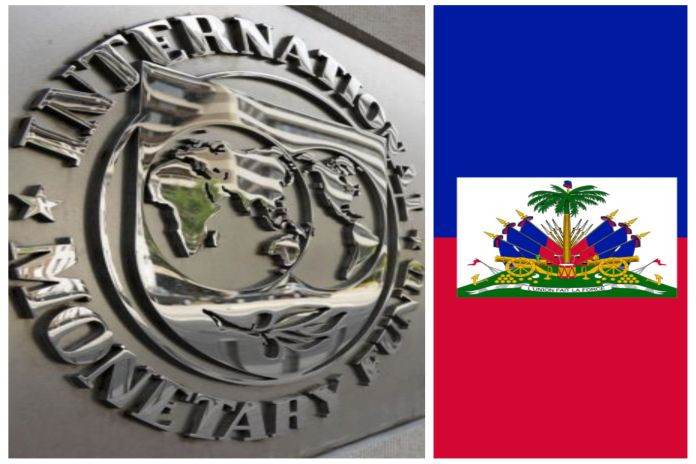 PORT-AU-PRINCE, Haiti – Haiti faces an unprecedented multidimensional crisis encompassing humanitarian, economic, social, and security problems. The economy has a low tax base and a large informal sector that relies heavily on volatile remittance flows.
PORT-AU-PRINCE, Haiti – Haiti faces an unprecedented multidimensional crisis encompassing humanitarian, economic, social, and security problems. The economy has a low tax base and a large informal sector that relies heavily on volatile remittance flows.
Since the last 2019 Article IV consultation, Haiti has suffered a series of shocks, including the pandemic; a devastating earthquake in 2021; cholera outbreaks; and the economic spillovers of the war in Ukraine, which led to a food crisis that triggered acute hunger. The severe deterioration of security over the last few years has magnified these problems – leading to a surge in the number of displaced people within and outside Haiti and to a significant drop in potential growth.
Haiti’s macroeconomic outlook is challenging and subject to elevated uncertainty. The supply-side shock caused by the security crisis would continue to greatly affect growth and feed inflation unless the security outlook improves.
Fiscal revenues, which are essential to reconstruct basic infrastructure after years of social unrest and support large development needs, are only slowly recovering.
Remittances would continue to finance consumption, although this reflects mainly an exodus of human capital which could further undermine a sustainable recovery. Growth is projected to be barely positive in 2025 and will stabilize at only 1½ percent over the medium term (pending further improvements in the security outlook).
Executive board assessment
Executive directors agreed with the thrust of the staff appraisal. They acknowledged the severity of Haiti’s multidimensional crisis, resulting from security, economic, humanitarian shocks, and the ongoing political transition, which has greatly affected the well‑being of the Haitian population. The outlook remains uncertain, as security continues to deteriorate, and growth is expected to remain low. Despite the headwinds, directors recognized the authorities’ achievements over the last few years in implementing reforms aimed at strengthening economic resilience and restoring macroeconomic stability.
Directors noted that normalization of security is essential to improve economic prospects, emphasizing the critical role of support from the international community in this regard, as well as in supporting the reform efforts and helping rebuild critical infrastructure. Directors also called for continued well‑prioritized engagement with the Fund, particularly through capacity development, appropriately guided by the Strategy for Fragile and Conflict-Affected States and welcomed the authorities’ interest in a new Staff Monitored Program, which would provide a useful policy anchor.
Directors commended the authorities for the timely passing of the budget and their efforts to increase fiscal revenue. They emphasized that further advancing the authorities’ revenue mobilization agenda is paramount to address Haiti’s immense development needs, notably through the implementation of the new tax code to broaden the tax base. Directors encouraged the authorities to step up the ongoing efforts to enhance the quality, efficiency, and transparency of public spending and called for continued strong scrutiny and prompt audit of the resources provided through the Fund’s Food Shock Window. They emphasized the need for sustained efforts to preserve debt sustainability, including by avoiding non‑concessional lending. Strengthening social safety nets to protect the most vulnerable and alleviate widespread poverty and continued endeavours to foster gender equality will also be critical.
Directors welcomed the authorities’ commitment to keeping the monetary financing of the deficit at zero and called for continued efforts to promote price stability and enhance the monetary policy framework. They urged the authorities to conclude and publish the 2023 central bank audit to demonstrate commitment to transparency and limit FX interventions only to smooth excessive exchange rate volatility. Directors noted rising vulnerabilities in the banking sector, particularly from non‑performing loans, and called for close monitoring and continued improvements to regulatory and supervisory frameworks. Further strengthening of the AML/CFT framework is also needed.
Directors strongly underscored that progress in implementing the structural and governance reform agenda is critical to lift potential growth. They welcomed the authorities’ efforts to strengthen governance and anti‑corruption frameworks and leverage digitalization. They urged the authorities to publish the governance diagnostic assessment and accompanying action plan as soon as finalized. Building resilience to natural disasters and fostering financial inclusion are also key. Directors strongly encouraged the authorities to improve data adequacy for surveillance purposes, while continuing to prioritize the quality and timeliness of monetary and reserve assets data.





